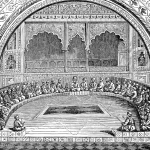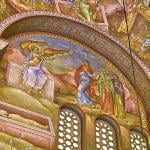When people talk about Joseph Ratzinger, the theologian, what most often goes mentioned is his erudition and his orthodoxy. What always strikes me most about Ratzinger’s writing is his humility, his meekness, his gentleness. There is a softness in the writing style which is incredibly endearing and inviting. Every word is carefully chosen to say just what is meant and not more. Errors are only ever gently rebuked, and not without humor. (There’s a fun passage in Introduction to Christianity where Ratzinger writes (I’m paraphrasing) “I find it easier to believe in resurrection from the dead and virgin births than in the historico-critical narrative of how the Gospels were written.”)
The actual Ratzinger, unlike his media caricatures, is just a profoundly likable fellow, and so I was really happy to pick up his book Milestones, a memoir of his years from his birth to the time when he was appointed archbishop of Munich.
For those who are looking for tabloid revelations, they’ll have to go somewhere else. The years of the book include the Second Vatican Council, but here you’ll find nothing of, for example, the humorous snark of Yves Congar’s journal of the Council. Ratzinger has only nice things to say about Hans Küng, who was a mentor in those early years but with whom he would go on to have serious disputes. There are no scoops.
No, the best and most affecting part of the book is the early part: the part about his childhood in rural Bavaria and growing up and becoming a priest.
Most striking is his descriptions of the arrival of Nazism. Ratzinger’s father was a policeman, and his resistance to Nazism led to several demotions and transfers, and the family had to move around. We see how the Nazi persecution of the Church was both immediate and insidious: the first educational reform by the new Reich was to ban religion classes. In Ratzinger’s village, a local potentate organized pagan winter and summer festivals to overshadow Christmas and Easter. Buildings have to be seized for war purposes–and it always happens to be the religious buildings. You get a real sense of Mordor slowly seeping into the Shire.
It is well known that the young Ratzinger, like all schoolmen his age, was pressed into wartime service by the Nazi thugs. What is less well known was that he eventually deserted–an offense punishable by summary execution. When you add the fact that one of Ratzinger’s cousins was murdered by the Nazis for the crime of having Down syndrome, the media narrative of Ratzinger as a “Hitleryouth” goes from ridiculous to downright monstrous.
Ratzinger draws the book to a close upon his episcopal appointment, saying, essentially, that when one becomes a bishop one no longer belongs to oneself, and that therefore he cannot have the same introspection and the same relation to those years as he can to the years before.
Milestones is a short, very touching, very nice book that gives one more window into the beautiful interior life of one of the great thinkers and actors of the 20th century.















